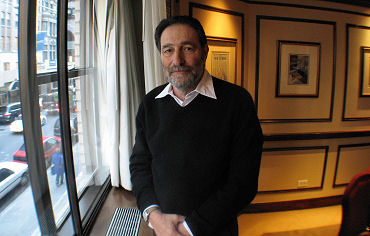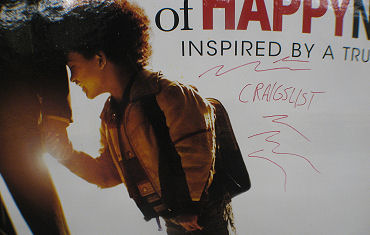
Day: December 10, 2006
Obama in N.H.
“We’ve come to be consumed by a 24-hour, slash-and-burn, negative ad, bickering, small-minded politics that doesn’t move us forward. Sometimes one side is up and the other side is down. But there’s no sense that they are coming together in a common-sense, practical, nonideological way to solve the problems that we face.” — Sen. Barack Obama speaking today in Manchester, New Hampshire, as reported by the N.Y. Times‘ Adam Nagourney.
Smith on 3 masterpieces
“To me, The Departed and The Good Shepherd are masterpieces. The Departed is such a fast-paced demon of a movie, with its hilariously nasty dialogue and tough, smart performances, that I kept checking my watch because I didn’t want it to ever end. And the Robert De Niro-directed The Good Shepherd is The Godfather of CIA movies, a tense epic of business and family. It sets a new standard for cloak and dagger. But the film of the year, if not the decade, is United 93. Every American should see it. It was one of the most moving experiences I√ɬ¢√¢‚Äö¬¨√¢‚Äû¬¢ve ever had in a theater, and it√ɬ¢√¢‚Äö¬¨√¢‚Äû¬¢s a lasting monument to American courage.” — N.Y. Post critic Kyle Smith in a discussion with colleague Lou Lumenick.
Roth chat at the Regency
I’ve admired screenwriter Eric Roth for a good ten or so years (and doubly so since The Insider), and I think he knows that. So when we sat down today at Manhattan’s Regency Hotel (Park and 61st) to talk about The Good Shepherd, which he’d heard I’m not a big fan of, things were a wee bit tense (for Roth, certainly) but soon after relaxed because he’s brilliant and amiable and a great guy to shoot the shit with, so we both just…settled in.
Here’s about 65% of our chat. It might help to read the Todd McCarthy review plus my own Shepherd review for background before listening.
McCarthy on “The Good Shepherd”
“The birth of the CIA and the life journey of one of its founding operatives is a fascinating subject, [but] one that is done only lukewarm justice in The Good Shepherd,” writes Variety‘s Todd McCarthy.
I can guess what the HE readership is thinking as they read this — give us rude, disturbing, irreverent, provocative or even gross….but please, please not lukewarm.
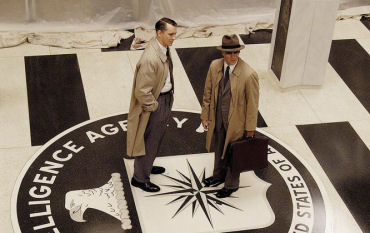
“Robert De Niro‘s second film as a director adopts a methodical approach and deliberate pace,” McCarthy continues, “in attempting to grasp an almost forbiddingly intricate subject, with a result that is not boring, exactly, but undeniably tedious.
“The long and short of the problem is that [De Niro] never finds a proper rhythm to allow the viewer to settle comfortably into what turns out to be a very long voyage. Like many films of the moment, this one keeps jumping around in time, not confusingly in the least, but in a way that has no natural flow to it. Tie that to a central character who defiantly offers no glimpse into his inner life and you have a picture that offers scant returns for the investment of time it requests of the viewer.
“Crucially missing is slowly building momentum, a firm hand on pace, a way to convey gradual moral decay and a talent for magisterial storytelling — gifts that are impossible to fake in the long run.
“Seemingly based in great measure on the ever-intriguing James Angleton, Matt Damon‘s Edward Wilson remains an opaque, impenetrable figure throughout, and neither actor nor script provides the subtext to reveal any layers of personality.
“Many of the supporting players provide welcome personal flavors, but thesping overall is restrained rather than flashy or deeply felt.”
“Shepherd” review
I respect the years of work, immense care and herculean effort that went into the making of Robert De Niro and Eric Roth‘s The Good Shepherd, and I admire the unity of tone and mood that the film provides. In no way is it muddled or slapdash. But it’s not very stimulating. I think it’s fair to use the world “lulling.” I don’t want to use the word “dull” because it’s always somewhat interesting, and sometimes mildly absorbing. But “somewhat interesting” and $1.75 will get you a bus ticket.
It’s a film with a vision, all right, and made by an above-average director who’s up to something serious and solemn. (You can tell DeNiro isn’t kidding around because of the length, which Universal should have kept at three hours…why not? It’s going to lower people’s eyelids anyway.) But I didn’t believe any of it. I couldn’t believe that being a spook in the late ’40s, ’50s and early ’60s was this confining, this spirit-deflating. Like any work-related obsession, it had to be exciting on this and that level, no? The excitement, the perversity, the intrigue, the killings? But there’s no particular current in what we’re shown. The story just “happens”, and about a half-hour in I started saying to myself, “Uh-oh…”
The Good Shepherd isn’t just a lament/indictment of the hermetic, ingrown culture of the CIA — it’s also a lament/indictment of WASP culture, which everyone knows is about exclusion, efficiency, ownership, clubbiness, Rice Krispies and half- hearted sex. It’s basically about WASP zombies in Burberry trenchcoats and dull haircuts and horn-rimmed glasses, and how if you’re a woman you’ll never want to marry one. (Unless you’re a WASP woman and you’re used to the tedium.)
The parallels between The Good Shepherd and The Godfather, Part II are obvious…but it only makes Francis Coppola‘s film look better. When Joe Pesci shows up…eureka! An Italian mafia guy with a little soul, a little attitude…a break from the WASPs! Viewers are subjected to way too many Skull & Bones ceremonies and get-togethers in this thing, I know that. And what’s with Damon singing in drag in the Yale production of H.M.S. Pinafore and then, later on, Bill Hurt and those other Skull & Bones guys doing a rendition fo “There Ain’t Nothing Like a Dame” in grass skirts?
Why is it that the spooks in the John Le Carre novels — based on reality, as Le Carre was in British intelligence — are so much quirkier and more flavorful and wittier than their American cousins? I loved John Irvin‘s six-hour Tinker, Tailor, Solder Spy and the other one, Smiley’s People, for their absorbing and very detailed stories and the fact that they were truly never dull.
I’m sorry, but as thorough and meticulous as it is in just about every department, The Good Shepherd is not very absorbing to sit through. Strange that a shortfall of this proportion has been written by the great Eric Roth (The Insider, The Curious Case of Benjamin Button, Forrest Gump, Ali). I think it’s the director’s fault. I mean, it always is.
Washington, D.C, critics weigh in
More significant wins have been handed to United 93, The Last King of Scotland‘s Forrest Whitaker, The Queen‘s Helen Mirren, Departed directors Martin Scorsese and Guillermo del Toro, and for Little Miss Sunshine screenwriter Michael Arndt.
The Washington, DC Area Film Critics Association (WAFCA) has announced winners of its 2006 awards, and the harrowing Universal-released, Paul Greengrass-directed drama was named Best Film, Whitaker was named Best Actor, Mirren was named Best Actress, Scorsese for Best Director and Arndt for Best Original Screenplay.
Blood Diamond‘s Djimon Hounsou was named Best Supporting Actor and Dreamgirls‘ Jennifer Hudson won for Best Supporting Actress. Jason Reitman won the Best Adapted Screenplay award for Thank You For Smoking, Happy Feet won for Best Animated Feature, An Inconvenient Truth won for Best Documentary and Guillermo del Toro‘s Pan’s Labyrinth won for Best Foreign-Language Film — the second win of the day following the Boston Film Critics honoring del Toro’s masterwork a few hours ago.
The Little Miss Sunshine posse won for Best Acting Ensemble, Jennifer Hudson won for Best Breakthrough Performance and Marie-Antoinette won for Best Art Direction.
“Iwo Jima” backlash
Get ready for the inevitable Letters From Iwo Jima backlash. Clint Eastwood‘s film having won Best Picture trophies from two high-profile orgs — one reputable, one not so much — provides incentive for those who respected/ admired it but didn’t think it was greatest thing since sliced bread to go on the attack. As CHUD’s Devin Faraci wrote earlier today, “If Letters From Iwo Jima is setting up a sweep, I’m going to hug a hand grenade.”
L.A. Film Critics Association
The Clint-rules faction prevailed in the Los Angeles Film Critics Association voting earlier today, resulting in the org’s Best Picture prize going to Letters From Iwo Jima — a very deserving choice. This is the second such tribute handed to Clint Eastwood‘s Japanese-language Iwo Jima drama following the National Board of Review’s Best Picture honoring two or three days ago.
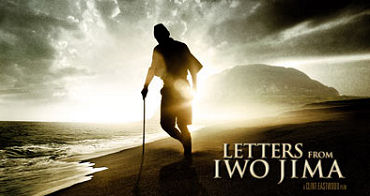
The big winners beside this were Stephen Frears‘ The Queen and Jonathan Dayton and Valerie Faris‘ Little Miss Sunshine. The former captured four awards and one runner-up prize, including a Best Actress trophy for Helen Mirren (her second following the Boston Film Critics decision just a couple of hours ago), plus a Best Supporting Actor award for Michael Sheen and a Best Screenplay win for Peter Morgan. Dayton, Faris and screenwriter Michael Arndt won the New Generation Award, and Arndt was named 1st runner-up for Best Screenplay.
United 93‘s Paul Greengrass, however, was named Best Director (with Eastwood getting the runner-up prize for Letters and Flags of Our Fathers). Borat‘s Sacha Baron Cohen and The Last King of Scotland‘s Forest Whitaker tied for the Best Actor prize.
Davis Guggenheim and Al Gore‘s An Inconvenient Truth was named Best Documentary. Happy Feet won for Best Animated Feature .
Volver‘s Penelope Cruz was just behind Mirren in the Best Actress voting, and Pan’s Labyrinth costar Sergi Lopez was the runner-up in the best Supporting Actor category.
A big surprise (and a possible indicator of critical reservations about Dreamgirls) was the Best Supporting Actress award going to Luminita Gheorghiu — who? — for her performance in The Death of Mr. Lazarescu. The runner-up in this category was Dreamgirls powerhouse Jennifer Hudson. (There’s no joy in Mudville over this one, let me tell you.)
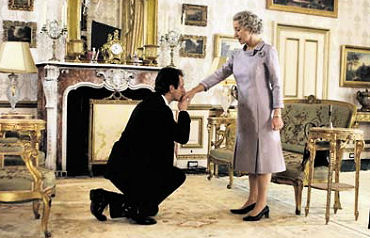
The great Emmanuel Lubezki won the Best Cinematography award — deservedly — for his work on Children of Men. (Runner-up: Tom Stern for Flags of Our Fathers and Letters From Iwo Jima.) The Best Production Design award went to Pan’s Labyrinth‘s Eugenio Caballero, (good call) — the runners up were Children of Men‘s Jim Clay and Geoffrey Kirkland.
Florian von Henckel Donnersmarck‘s The Lives of Others won for Best Foreign Language film…yes! (Runner up: Volver.) Alexandre Desplat won the Best Musical Score award for his work on The Queen and The Painted Veil. (Runner-up: Thomas Newman for The Good German and Little Children.
Boston Society of Film Critics
The Boston Society of Film Critics met earlier today and gave Martin Scorsese‘s The Departed their Best Picture prize, with Scorsese named as Best Director. And — this is awesome — Paul Greengrass‘s United 93 was named first runner-up. Total agreement! I wasn’t expecting United 93 to rank as a last-minute punch-through — I thought it had done a fade. United 93 also placed as one of the American Film Institute’s just-announced top ten.
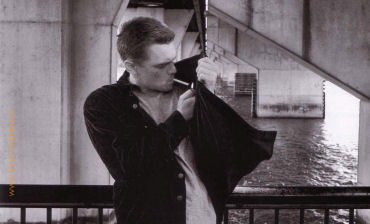
The Beantown guys also chose The Last King of Scotland‘s Forest Whitaker for Best Actor (with Half Nelson‘s Ryan Gosling named runner-up). The Queen‘s Helen Mirren took the Best Actress prize (runner: Judi Dench in Notes on a Scandal),
The Best Supporting Actor prize went to The Departed‘s Mark Wahlberg (the guy gave a great scrappy performance but this comes as a bit of a surprise!…could this be a regional-loyalty thing, Wahlberg being from the Boston area?). The e-mail I received about this from one of the Boston critics says the Supporting Actor runners-up were The Queen‘s Michael Sheen and The Departed‘s Alec Baldwin….but it was written confusingly.
The Best Supporting Actress trophy went to Half Nelson‘s Shareeka Epps, with Meryl Streep‘s The Devil Wears Prada performance taking the runner-up distinction.
The Best Ensemble Cast went to the United 93 team, with The Departed crew taking first runner-up. The Best Screenplay award went to The Departed‘s William Monahan, with Peter Morgan named runner-up for his screenplay for The Queen.
Guillermo del Toro‘s Pan’s Labyrinth was named Best Foreign Language Film. (Runner-up: Pedro Almodovar‘s Volver.)
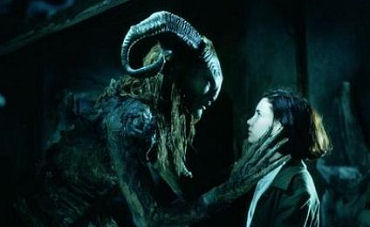
The Best Documentary prize was a tie between Deliver Us From Evil and Shut Up & Sing. (Runner-up: 51 Birch Street.)
The Best New Filmmaker award went to Half Nelson director Ryan Fleck. (Runners-up: Jonathan Dayton & Valerie Faris for Little Miss Sunshine.) The Best Cinematography award went to Pan’s Labyrinth‘s Guillermo Navarro. (I must take exception — as sublime as Navarro’s work is, it isn’t in the same realm as Emmanuel Lubezki’s for Children of Men.)
The tied Best Cinematography runners-up were The Painted Veil‘s Stuart Dryburgh and Curse of the Golden Flower‘s Xiaoding Zhao.
Adjusted numbers
Weekend estimates for Apocalypto have slightly downscaled — Mel Gibson’s film is now projected to come in at $14,531,000. Happy Feet is expected to finish at $13,661, The Holiday with 12,854,000, Casino Royale with $9,119,000, Blood Diamond with a slightly higher figure of $8,375,000 (still a tank), Unaccompanied Minors with $6,008,000, Deja Vu with $6,005,000 and The Nativity Story with $5,111,000.
Oscarwatch on AFI
“The AFI, for my money, has great taste. Their choices are often the best reviewed films of the year but they also include films that made a mark, whether or not they got stellar reviews overall. The most significant thing about them is that in the beginning, they used to do the awards thing with nominations (and acting categories) but that seemed to add to the overall awards orgy and [so] hey stopped their practice. Now they name a top ten and that’s it. You can see that all five best picture nominees are on this list.” — Oscarwatch‘s Sasha Stone on the AFI ’06 award winners, which will be announced later today.

